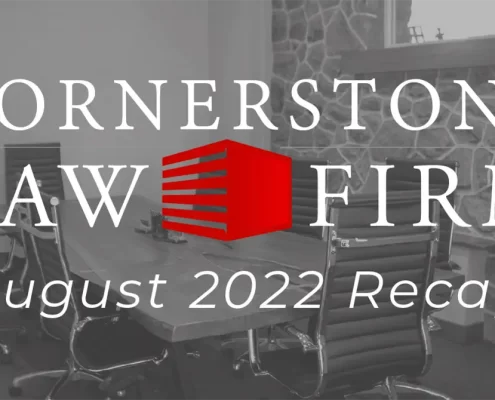
Understanding Your Rights as a Grandparent
Custody, Family LawIn many families, grandparents play a crucial role in the lives of their grandchildren. Grandparents offer love, support, the wisdom of years and guidance through difficult times. Unfortunately, there are situations in which grandparents may…

How do you Countersue for a PFA?
Family LawProtection from Abuse Orders, also known as PFAs, protect those who claim to have suffered abuse or who claim they are afraid of imminent abuse. The defendant in a PFA is usually evicted from the home where they’re living with the person alleging…

Common Law Marriage in Pennsylvania
Family Law, Wills & Estateshttps://youtu.be/CDlEpqWrVZ4
Common law marriage is an old rule that originally comes from England. The idea behind it is that a man and woman could be married simply because they represented themselves as a married couple enough times in…

Relocating your kids when you have a custody order
Custody, Family LawMoving your kids when you have a custody order is about as painful as custody was in the first place. Whether you are a parent with primary custody, partial custody, or joint custody, you know that living with custody orders means living with…

Appealing a Custody Order
Custody, Family LawWhat do you do when a judge gets the custody decision wrong? How can you appeal a bad decision that is going to hurt your children or your family? Under Pennsylvania law there are typically two types of appeals that you take from custody orders.
Two…

Seeking an Amicable Divorce by Working with the Same Attorney
Divorce, Family LawWelcome to Family Law Tip of the Week, a regular series on our blog where we offer tips on how to go through divorce and custody disputes in an amicable way. Divorce should always be a last case resort but if you are going through it, we want…

The Purpose of a Home Study in a Custody Dispute
Custody, Family LawWhen you’re fighting for custody with the other parent of your child, you will be introduced to many new terms and pieces of the legal process. One of these is called a “home study.” Often in a custody case, you’ll be asked by your lawyer…

Modifying Custody
Custody, Family LawIf you’ve reached a custody agreement with someone, it’s not set in stone forever. Circumstances change, people change, and of course custody arrangements have to change. This is especially true if you reach a custody agreement with someone…

When Winning Feels Like Losing
Custody, Divorce, Family LawThere is nothing more important in life than your kids. Fighting over who will have custody of your kids is the most stressful thing that most people will ever go through. From the first conversation with your lawyer to the last, you will be…

Adopting your Stepchildren
Family Law, Wills & EstatesThe Brady Bunch was meant to be a humorous show about the difficulties of merging two families with kids. But 50 years after the show debuted, there isn’t really any joke about it. Merged families are the norm, and for parents working to ensure…

What is the penalty for filing a false PFA in Pennsylvania?
Civil Law, Family LawWhen someone lies in a Protection from Abuse petition, an incredible amount of consequences follow for everyone involved. The person who is named as the defendant in a PFA temporarily loses access to their guns and is often evicted from their…

August 2022 Review
Berks County, Business Law, Criminal Law, Divorce, Family Law, Landlord/Tenant, Personal Injury, UpdatesThis month the attorneys at Cornerstone Law Firm have been busy with:
landlord/tenant actions all over the state
personal injury cases that are settling and going to court
insurance disputes
contractor fights
a trade secrets…
